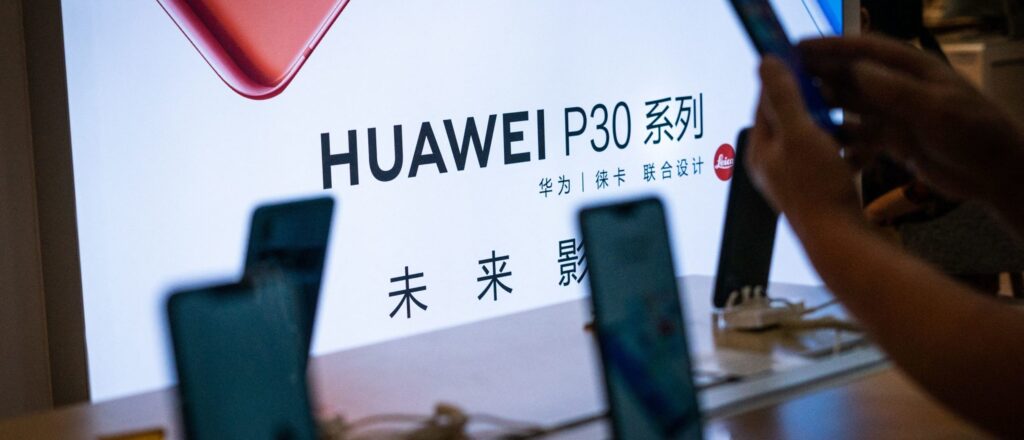Top semiconductor manufacturer Intel has so far managed to continue the sale of hundreds of millions of dollars worth of chips to Chinese telecommunications company Huawei, despite sanctions from the Biden administration restricting sales, Reuters reported Tuesday.
Intel’s license, which was granted under the Trump administration, permits it to sell advanced semiconductors for use in Huawei laptops, and President Joe Biden has so far not moved to revoke the license, much to the ire of competing American chip firms like Advanced Micro Devices (AMD), according to Reuters. The U.S. and China are in the midst of a trade war, with both countries vying for an edge in the production of semiconductors due to their consumer and militaristic capabilities, with China leveraging its access to rare minerals while the U.S. maintains its intellectual property advantage. (RELATED: Top Jet Manufacturer Agrees To Pay Tens Of Millions After Export Violations Involving China)
Biden’s Commerce Department in 2023 privately told top chip companies that it would fix the discrepancy in Intel’s access to the Chinese market and publicly said that the policy around Huawei’s licensing was under review, sources familiar with the matter who are not authorized to speak publicly told Reuters. The Biden administration halted plans later that year to change licensing for unknown reasons, but the change in direction occurred as the U.S. and China looked to thaw relations.
In early 2021, AMD applied for a similar license that Intel held that would allow them to sell certain chips to China but was never given a response, sources told Reuters.
An internal AMD presentation estimates that the licensing discrepancy has cost the company $512 million compared to Intel as of early 2023, according to Reuters. Following the uneven restrictions, the share of sales for laptops from Huawei with AMD chips fell from 47.1% in 2020 to 9.3% in the first half of 2023, compared to a change of 52.9% to 90.7% in that same timeframe with Intel chips.
In addition to pressure from chip rivals like AMD, Biden is also facing pressure from China hawks who want to cut off the country’s access to American chips to preserve the U.S.’ dominance in the technology, according to Reuters. Huawei has managed to maintain a presence in the global laptop market thanks to sustained Intel sales.
Thread
🚨Is @SmithfieldFoods’ pork from the US feeding China’s military?
During the COVID-19 outbreak, did medical supplies from the company go to Chinese soldiers?🚨
Please read & share this tweet & the linked article, thank you.@DailyCaller https://t.co/lqg5PBDhxv pic.twitter.com/zikU6levIs
— Philip Lenczycki 蔡岳 (@LenczyckiPhilip) March 1, 2024
Huawei was put on the Commerce Department’s entity list in 2019, barring it from working with American companies unless they are given special permission. In August, the Semiconductor Industry Association alleged that Huawei was secretly constructing a network of chip factories in China to evade U.S. restrictions.
The Federal Communications Commission has also banned telecommunications devices and video surveillance equipment manufactured by Huawei as well as four other Chinese companies amid national security concerns.
The Biden administration imposed new restrictions on the semiconductor industry in October 2022, blacklisting multiple Chinese companies from working with American firms to block access to sensitive chip technology.
Intel declined to comment to the Daily Caller News Foundation. The Commerce Department did not immediately respond to the DCNF.
All content created by the Daily Caller News Foundation, an independent and nonpartisan newswire service, is available without charge to any legitimate news publisher that can provide a large audience. All republished articles must include our logo, our reporter’s byline and their DCNF affiliation. For any questions about our guidelines or partnering with us, please contact licensing@dailycallernewsfoundation.org.


